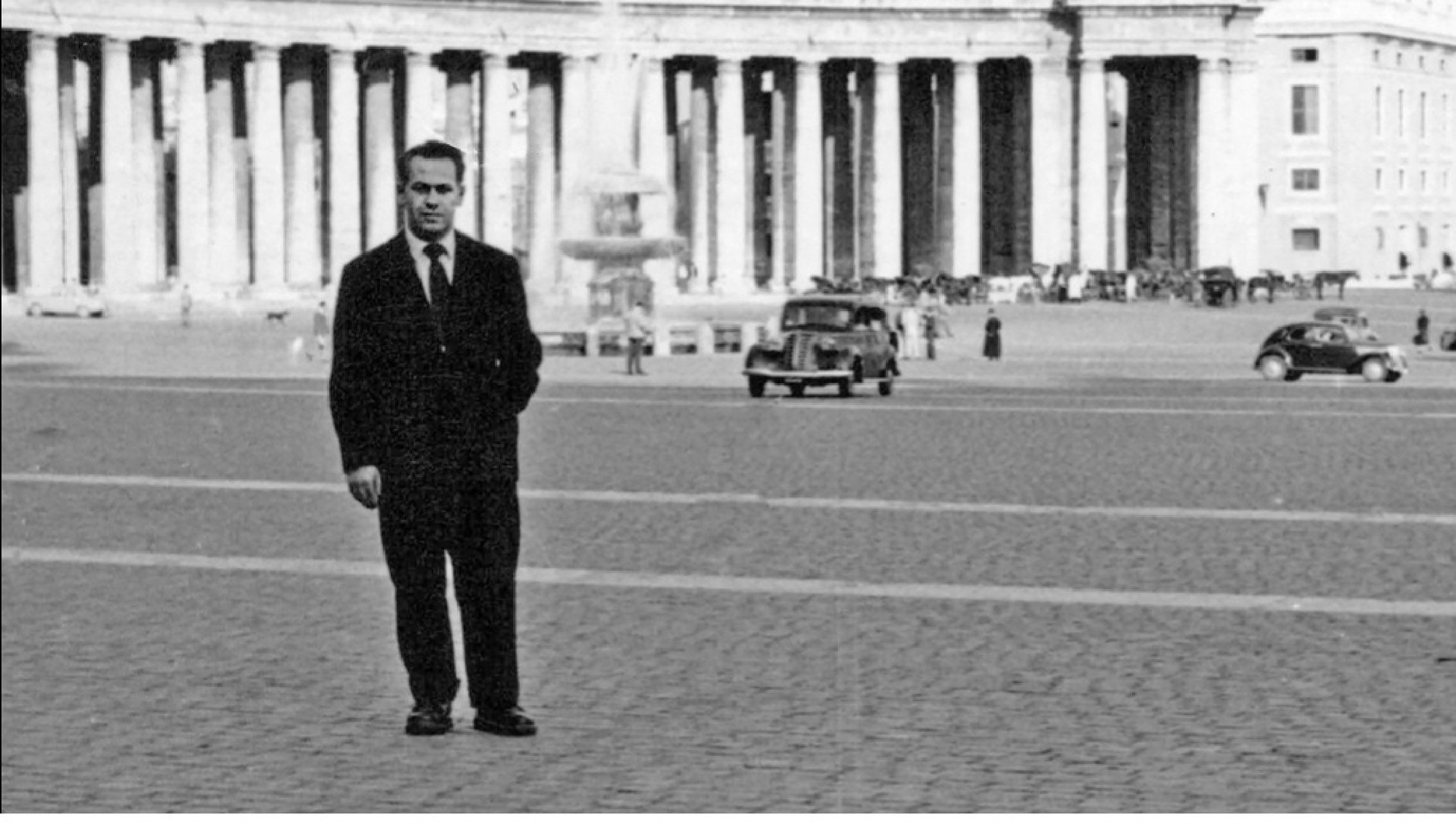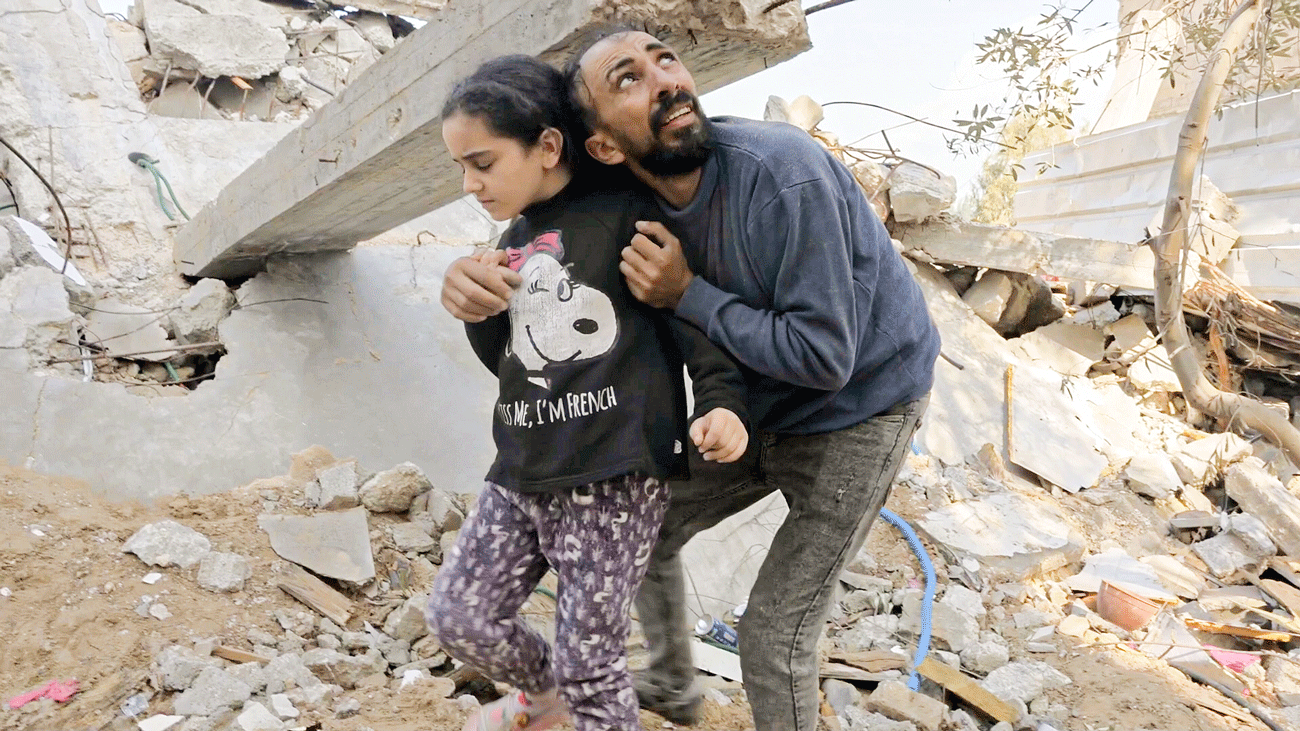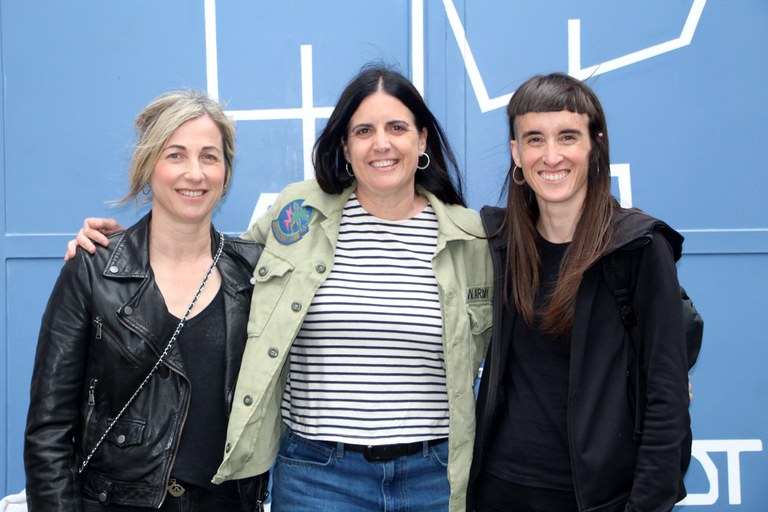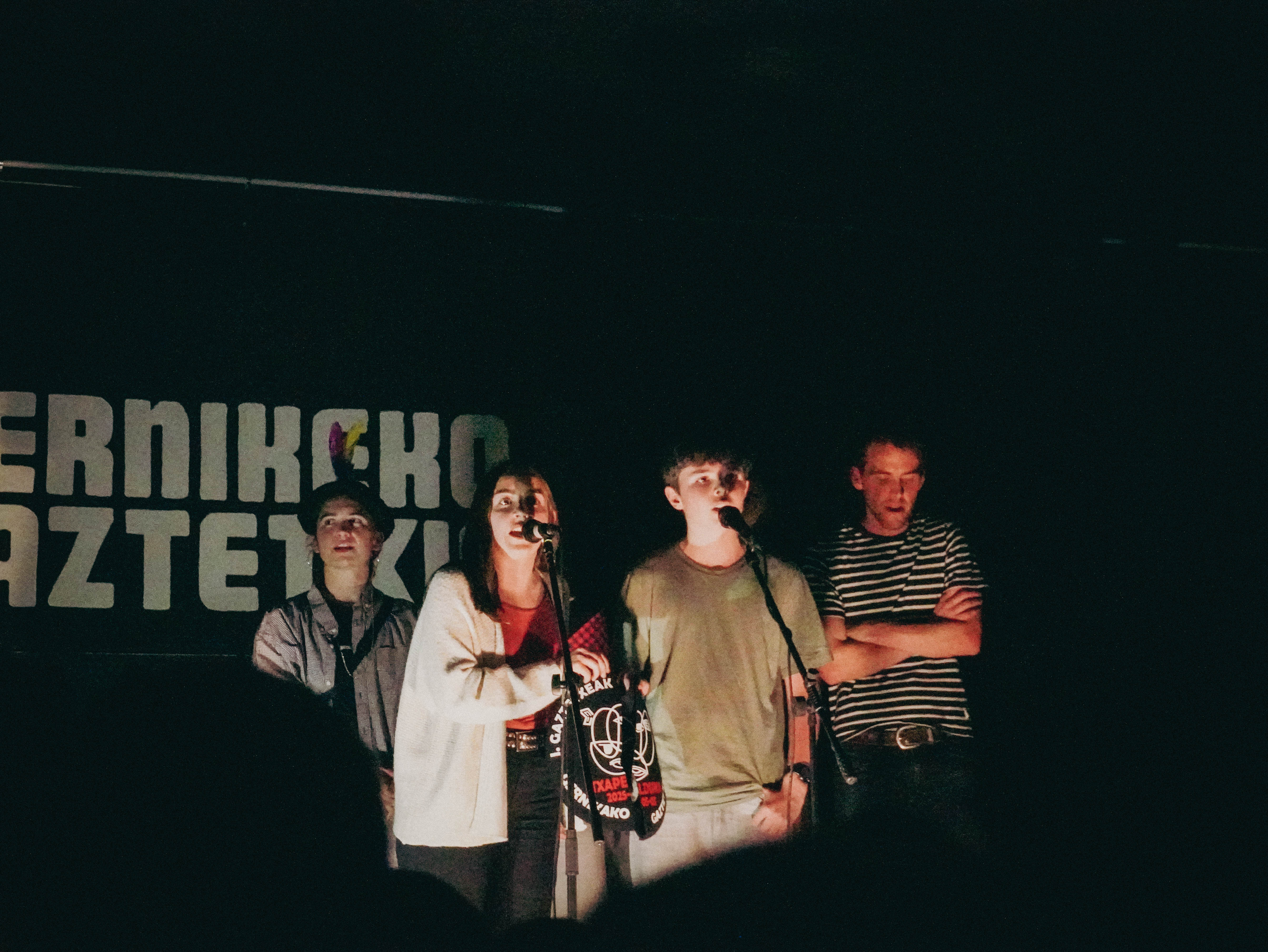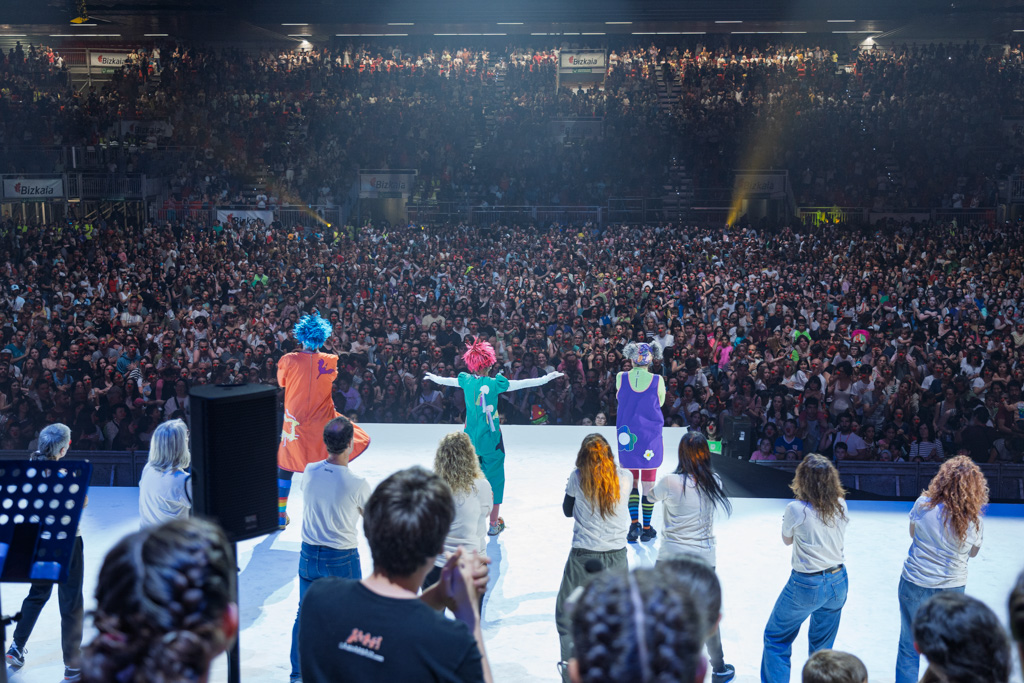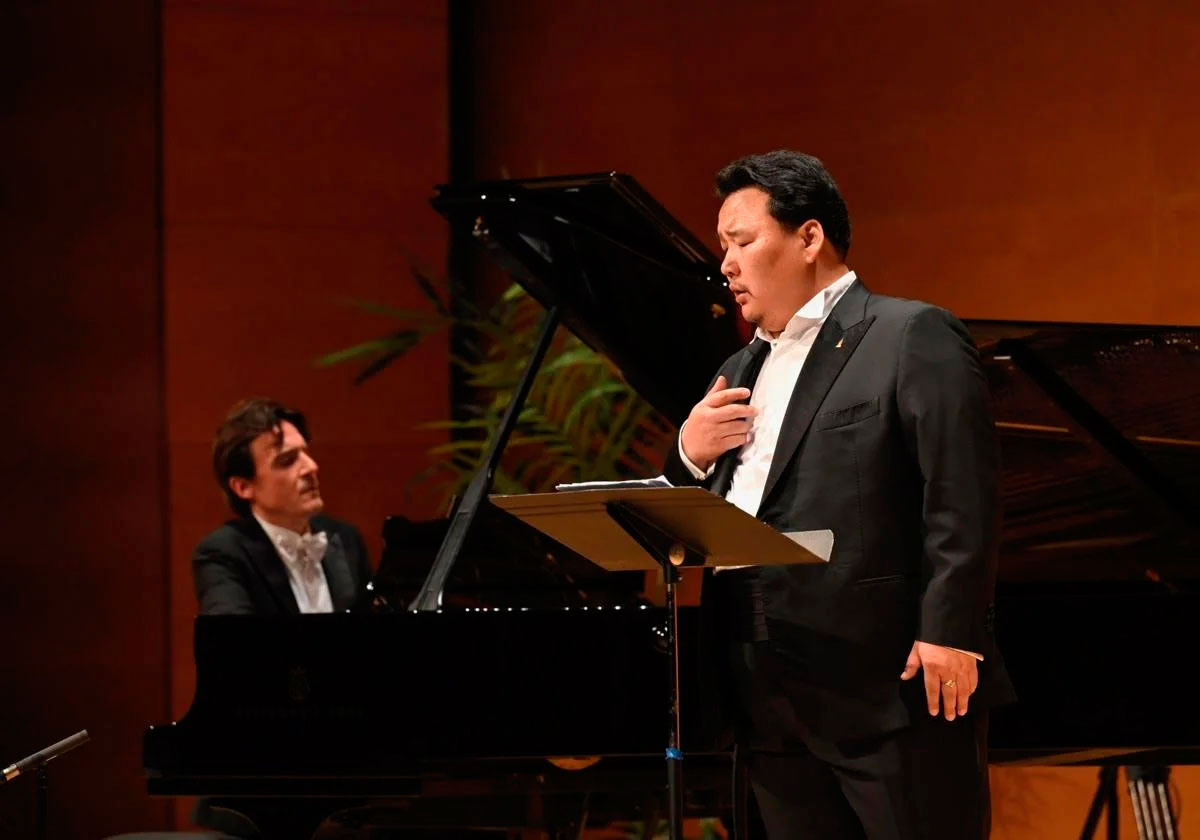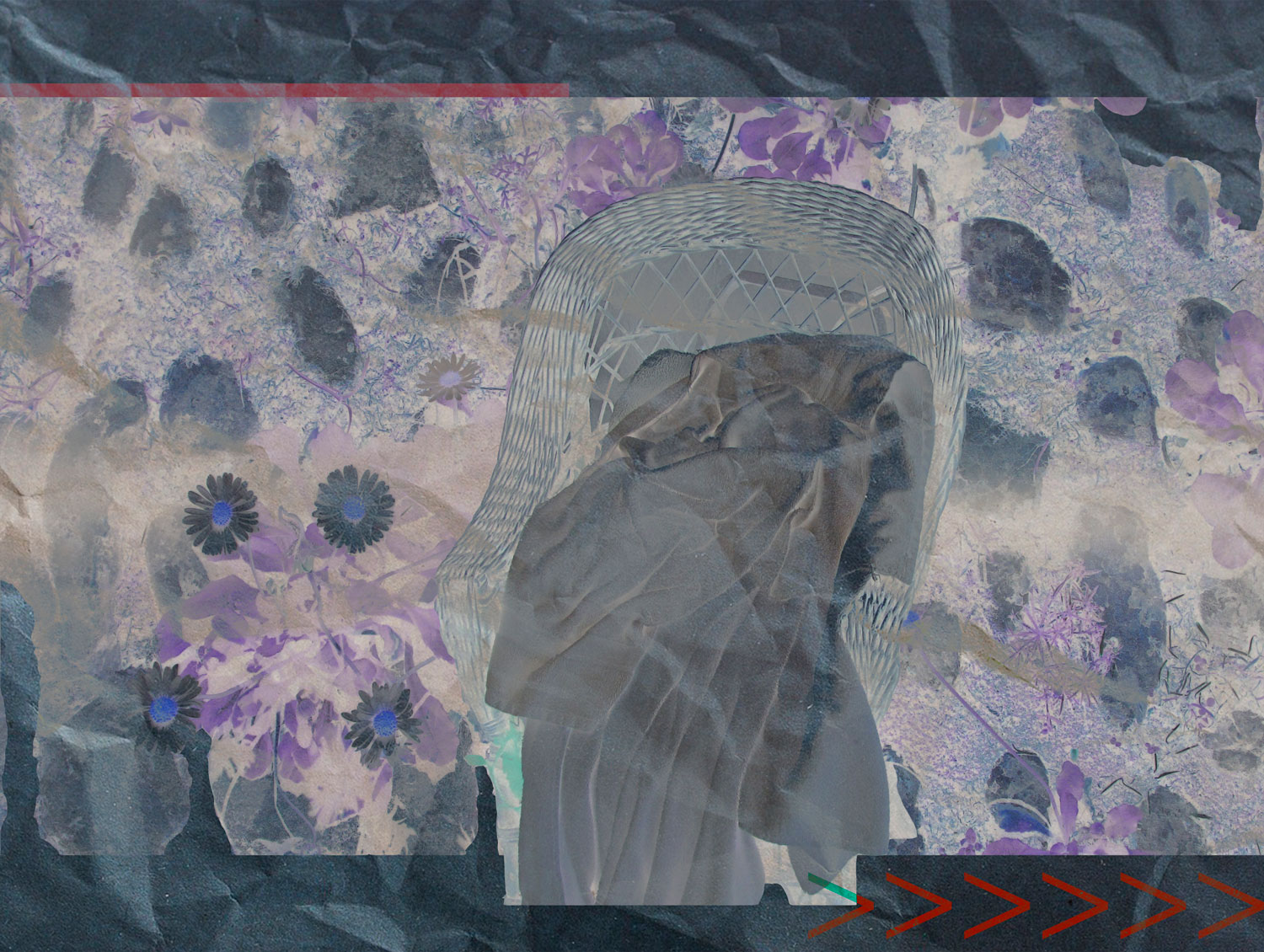"Our ancestors saw something where we don't see."
- The galdakaoztarra Jon Mentxakatorre works at Mondragon Unibertsitatea, researcher and professor, partly around mythology. The Basque oral tales and the underground space. He has published a study of analysis and anthology (Fundación Labayru, 2023). Before we enter into conversation, he has taught us the mountains, the forests and the corners of the house.

For starters, what are myths? And what mythology? The
myth comes from the Greek mythos, and we usually use it as storytelling or storytelling. But it has two other big senses: one is the word and the other is silence. The myth always tells something that is a little bit above the space-time coordinates, which introduces roots into the world of transcendence. That Mythos is related to mystery. We shut up when we see something extraordinary. Then, when we go home, we give him the floor: “I’ve had the basajauna, the lamia or whatever.” This is indicated by all the information: “It’s gone.” Myth is a narrative that has a transcendent dimension or that reports on the transcendent dimension. And mythology is the science of myths, the study of myths.
And where is your work?To do a good work
of mythology you have to have all the myths about the same table. So the first thing you have to do is pick up as many materials as possible and start organizing and analyzing them. We got to mitopoetry before we got to mythology. What we see here is how in these myths there is a special formulation, in this case through our people. And how concrete formulas or phrases are repeated, or special ways to articulate that transcendence. What is mitopoiesis? A special way to organize this dimension of transcendence through poetic narration. The work I've done goes so far and a little bit of adventure in the whole study, in the field of mythology, in the epilogue. Mythology is what we should do about this work: knowledge. Some go from one side to the other, from a few myths to mythology, without doing the central work, sometimes without knowing Basque... I saw this work as indispensable, that's the reason.
Therefore, myths do not refer to anything that science can explain today. Do they tell us something else?
Science has decided to be positivist in the last five centuries. What you see with the naked eye, what you measure is that two people see the same thing with the same matter with the naked eye and with the same results. It's the ideological choice of science. In other times, Bacon and some others decided that, in order to gain rigor and benefit, the vision had to be reduced. So today, everything that you don't see with the naked eye is out of science. Psychology, for example, the closer it is to biology, the better. And if the social sciences are dedicated to statistics and math, better. Quantitative, therefore, rather than qualitative. But the people have lived in an oral, imaginative and traditional way; all our ancestors lived this way, presented to them the lamias and the basajaun. Those people weren't crazy. I think it's more logical to think that they saw something where we don't see. I do not mean that we are forced to accept stories in full or blindly, because that is not the case. In other words, we should not wait to see what myths count.
"Today we are looking for means or techniques to know ourselves, for our well-being, as isolated human beings"
What gaps do we have today to understand this, to reach those myths? On the one hand, what has
happened to us in Euskal Herria is that the great changes that modernity has demanded, the political, technological, religious changes, instead of coming for five or six centuries, have come to us, more or less, all in the 20th century. In the south the war of 1936, then the dictatorship of 40 years, in the north the Second World War, the war of Algeria, and before the First World War, the dictatorship of Primo de Rivera and many other things, other violence and oppression... That is what has led to an internal breakdown, which has caused the intergenerational transmission to break, or which has not been done with sufficient calm and synthesis. This material has been gradually cooked in the campfire area, in the mountain area under fog or in the dark areas of the forest.
It must be borne in mind that in the last century we have experienced a great process of secularization. It is not that in the West we have abandoned the Church, it is more, that we have gradually turned our back on this transcendent dimension. With this we have gained great autonomy, great scientific, technological, political, ideological achievements. But we are getting further and further away from it, more and more reddened, and we have an inability to understand what had happened in the past. And it's essential to say that this material of myths is not from our present world, it's not created by Hollywood, it's from tradition and orality, and the people who created this material believed or lived in full. But if we think it's nonsense ... If this was important to our people, I don't know what work we will have to do, but let's get closer to that look, let's analyze it and do the synthesis work. What happens to us is that we live in a very techno-scientific world, so we give less ontological value to what we don't see at first glance. Dreams, imagination, clear sensations are also part of us, but we have delegates at another level. At present they are handicapped, below zero, but before they were on the plus.
What values do we have in the myths here? What can they bring to us? On
the one hand, what we have is the material that has shaped the vivid imagination of our ancestors. A civilization has its values, right? Dignity, honor... But above all, what a civilization has is a shared imagination, a world full of common sense to find meaning to events when we're happy and sad. This imaginary, which has been for 2,000 years or 2,500, has started with the Bible, with classical works, and then with village to village mythology, that's broken for us. We're reinventing ourselves with movies and stuff like that, but that imagination has left us. This material is used to bring us back to this imagination. On the other hand, it serves to be our corpus, like the Bertsos and other things, to understand how the people have done mitopoetry. Then, these myths show a mythic geography.
Today we go to the Anboto and we see nothing. At the naked eye. The first ones didn't do it with the naked eye, but with the naked eye. Little by little, with a great deal of reflection and reiteration, they are things cooked in small bonfires, and along with that little bonfire many other things have been taken: the hopes, desires, values, concerns, concerns, joys and tears of our people. Values that we can find in popular knowledge, human dignity, community priority, or honor, given word, solidarity... I do not mean that we will find them in full gorge, in abuse, in myths; but myths are as many emissions or flows of that courtesy that our people have had, the product or the production of that world. It then serves us to approach this environment and understand the flavors or smells that were produced in it.
He uses the word chivalry. What were the ways that they used to get better?
I'll just say one thing: I think before people had the ability to look at themselves, that today we have less and less. [Jose Migel]Barandiaran gave us, so to speak, the seed of Basque thought and the Basque instinct. We have to bear in mind what Barandiaran said, who did a great job and did not reflect or interpret until the age of 60-70. To see who can expect so much today to give his vision. He said that round phrase, “we are not of ourselves.” Before, people had the ability to look inside themselves.
Today, perhaps, we are looking for ways or techniques to know ourselves, for our well-being, as isolated human beings. But myths always teach us that we're an organic, non-mechanical part of a great whole.
Imagination has four phases. The first is what the psychosomatic system does: I now see the glass, the table ... The visualization of the images as they are. These images can be stored in memory, in memory, and brought from it when we don't have what those images show face-to-face; that's the second level that's usually considered as an image. Third: they can transform into memory, confuse images or create new ones, but always based on what is known before.And there is a fourth level, related to myths. The first said that the imaginative beings in the myths were “coming out,” they wanted. That is, they were remembered clearly, without being previously, or without being influenced by oneself. The people before were more open to it: reality was presented to it, they didn't imagine it so much. The subject of action is very different in one or the other.
.jpg)
How does today's society see? Do people miss this transcendence or do they just have the answers they have? All the
experts show it with all the indicators. The human being is human because he is able to ask big questions: where life comes from, who was before birth, what is there after death... Depending on the moments or events of life, or probably age, the answers are not the same, or the answers do not satisfy us equally. But the questions are always the same, no matter when, in what place, without anyone transmitting them to us, those questions germinate. This shows that we're opened anthropologically, ontologically, to more than what you see with the naked eye. Another thing is how we're used to answering these questions. In general, we don't serve them, we don't care. But we are able to ask questions, and at a given moment the questions hit us harder, when we lose an environment, on the brink of death... Today, unfortunately, I would say, in the face of these universal questions, increasingly individual answers are given. We are able to ask questions, but we can also decide not to give answers or, as the answer does not entirely satisfy the question, to say that the question does not make sense. That would be an agnostic attitude.
Look, an author who was at the blackest point of the 20th century, Viktor Frankl. Having lived in Auschwitz and other concentration camps, he survived and realized that when people get to the extreme, he is able to stay alive and in his healthy judgment according to his wealth. In extreme situations, rather than being physically healthy, the person needs to be open to that space of meaning.
Being at the point where we are, what would you say should be done?
I believe that we need a new anthropology, a new synthesis of understanding of the human being, also accommodating what was before, to which we have turned our back in recent times. Instead of leaving this world, with proper articulation, updated, a synthesis, cook again on small fire. We can once again be able to recover those coordinates: to express our hopes, the clearest desires, the dreams, the loves, the hatreds in depth or on the wider horizon... Because that would bring a lot of questions, the ones Immanuel Kant asked -- what I can know, what I can do, what I should do, what I can expect -- answer very differently.
"The human being is human because he is able to ask big questions. But we can decide not to answer, or say it doesn't make sense because we're not satisfied with the answer."
In today's world: What can I do? Learn and be as appropriate as possible. What should I do? Enjoy the most beautiful holidays you can and show it through social media. And what can I expect? For nothing, to prolong this life as much as possible. These are answers with a very short journey.
You made a thesis about Tolkien, in philosophy.
Tolkien wrote the Lord of the Rings and a legendary whole around him. He was a professor at the University of Oxford. It had two chairs, experts in ancient languages and literature. I knew about twenty languages. It was he who did the literature and explored that extra sense, that fascinating sense that he found in those old languages. What could it be on this current Atlantic coast, to be a person, a person, from the city that lives to where the sun sets? What Tolkien did is to try to explore an entire era of the past of our Western civilization on a new imaginary level. It is not true at the historical level, but it is true at the level of imagination, because it is a new attempt at synthesis that is made from sensibility, roots, letters and ancient languages.
There has to be something in their work. The best-selling and read book in the second half of the 20th century, or one of the most numerous, was the Lord of the Rings. We're very materialistic, and, well, what you read the most is a book of these characteristics. What's in that book? There's something. Instead of through speech, show it through art and beauty. It coincided with secularization, Max Weber and all of them talked about the loss of illusion, disenchantment. In the original it is very nice, it means “entering songs or in surprising words”. A world sung and filled with poetry is fascinating, and we lived, our ancestors lived in an oral world, in a fascinating world. As we have stopped singing, we have become a different way, the world has lost its fascination. But we, still fortunately, are able to fascinate ourselves. We are open to this.
BRN + Neighborhood and Sain Mountain + Odei + Monsieur le crepe and Muxker
What: The harvest party.
When: May 2nd.
In which: In the Bilborock Room.
---------------------------------------------------------
The seeds sown need water, light and time to germinate. Nature has... [+]
Euskadi markak, eraikuntza sektoreko ekonomiaren estrategian, “industrializazioa” mantrarako hitz gisa hartu duela jakinarazi berri du Eusko Jaurlaritzak. Etxebizitza publikoaren eraikuntzan industrializaturiko prozesu eta elementuak lan guztien %65a izatea... [+]
Last week, during the blackout, seeing ourselves vulnerable, we began to investigate many people in order to understand what happened: how does the infrastructure that transports electricity work? Why is it getting old? I am fascinated by the physical phenomenon of electricity... [+]
Aurreko tertuliako galderari erantzuteko beste modu bat izan zitekeen, akaso modu inplizituago batean, bigarren solasaldi honetako izenburua. Figura literarioaz gaindi, pertsonaia zalantzan jartzeko, edo, kontrara, pertsonaiaren testuingurua ulertzeko saiakera bat. Santi... [+]
Now that everyone has become more Franciscan than the Pope, it’s worth remembering our unsurpassed classics. There was one in the 17th century, his grace was Arnaut Oienart. And since we can’t immerse ourselves in all his works, today we will praise O.ten youth in... [+]
“We rehearsed, we showed it to the boys, we were there when they needed help for the grill, but then we never danced in the square or even crossed our mind.” Oihane Auzmendi Iturbe (Legazpiia, 1977) is a dancer of the dance group Roots, but for years he did not have the... [+]
Amartuvshin Enkhbat baritonoa
Pianoan: Stefano Salvatori.
Antolatzailea: OLBE.
Zer: Verdi, Mascagni, Leoncavallo eta Giordanoren operen ariak.
Non: Bilboko Euskalduna Jauregian.
Noiz: martxoaren 29an.
Martin Martina and the Mystery of the Golden Comb
by Amancay
Gaztelañaga Batu, 2024
-----------------------------------------------------
Amancay Castañaga launches the mystery of Martín Martina and the golden comb accompanied by the illustrations of Alain Martínez... [+]
The annoying noise of the works of the neighbors has awakened me even today. I put my head on the pillow, and I tried to sleep for another twenty minutes, but there was no one to shut that drill down. I woke up and looked at the table of duties that I did at the beginning of... [+]












.jpg)
